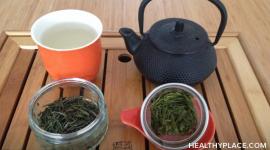Alternative Treatments for Alzheimer's Disease

There are many natural treatments - herbs, supplements and alternative remedies claiming to prevent Alzheimer's Disease. But do they work?
The Alzheimer's Association carries this warning on its website:
"A growing number of herbal remedies, vitamins and other dietary supplements are promoted as memory enhancers or treatments for Alzheimer's disease and related diseases. Claims about the safety and effectiveness of these products, however, are based largely on testimonials, tradition and a rather small body of scientific research. The rigorous scientific research required by the U.S. Food and Drug Administration (FDA) for the approval of a prescription drug is not required by law for the marketing of dietary supplements."
Concerns about alternative therapies for Alzheimer's disease
Although many of these remedies may be valid candidates for treatments, there are legitimate concerns about using these drugs as an alternative or in addition to physician-prescribed therapy:
Effectiveness and safety are unknown. The maker of a dietary supplement is not required to provide the FDA with the evidence on which it bases its claims for safety and effectiveness.
Purity is unknown. The FDA has no authority over supplement production. It is a manufacturer's responsibility to develop and enforce its own guidelines for ensuring that its products are safe and contain the ingredients listed on the label in the specified amounts.
Bad reactions are not routinely monitored. Manufacturers are not required to report to the FDA any problems that consumers experience after taking their products. The agency does provide voluntary reporting channels for manufacturers, health care professionals, and consumers, and will issue warnings about product when there is cause for concern.
Dietary supplements can have serious interactions with prescribed medications. No supplement should be taken without first consulting a physician.
Coenzyme Q10
Coenzyme Q10, or ubiquinone, is an antioxidant that occurs naturally in the body and is needed for normal cell reactions. This compound has not been studied for its effectiveness in treating Alzheimer's.
A synthetic version of this compound, called idebenone, was tested for Alzheimer's disease but did not show favorable results. Little is known about what dosage of coenzyme Q10 is considered safe, and there could be harmful effects if too much is taken.
Coral calcium
"Coral" calcium supplements have been heavily marketed as a cure for Alzheimer's disease, cancer and other serious illnesses. Coral calcium is a form of calcium carbonate claimed to be derived from the shells of formerly living organisms that once made up coral reefs.
In June 2003, the Federal Trade Commission (FTC) and the Food and Drug Administration (FDA) filed a formal complaint against the promoters and distributors of coral calcium. The agencies state that they are aware of no competent and reliable scientific evidence supporting the exaggerated health claims and that such unsupported claims are unlawful.
Coral calcium differs from ordinary calcium supplements only in that it contains traces of some additional minerals incorporated into the shells by the metabolic processes of the animals that formed them. It offers no extraordinary health benefits. Most experts recommend that individuals who need to take a calcium supplement for bone health take a purified preparation marketed by a reputable manufacturer.
See also the FDA/FTC press release on the coral calcium complaint.
Ginkgo biloba
Ginkgo biloba is a plant extract containing several compounds that may have positive effects on cells within the brain and the body. Ginkgo biloba is thought to have both antioxidant and anti-inflammatory properties, to protect cell membranes and to regulate neurotransmitter function. Ginkgo has been used for centuries in traditional Chinese medicine and currently is being used in Europe to alleviate cognitive symptoms associated with a number of neurological conditions.
In a study published in the Journal of the American Medical Association (October 22/29, 1997), Pierre L. Le Bars, M.D., Ph.D., of the New York Institute for Medical Research, and his colleagues observed in some participants a modest improvement in cognition, activities of daily living (such as eating and dressing) and social behavior. The researchers found no measurable difference in overall impairment.
Results from this study show that ginkgo may help some individuals with Alzheimer's disease, but further research is needed to determine the exact mechanisms by which Ginkgo works in the body. Also, results from this study are considered preliminary because of the low number of participants, about 200 people.
Few side effects are associated with the use of Ginkgo, but it is known to reduce the ability of blood to clot, potentially leading to more serious conditions, such as internal bleeding. This risk may increase if Ginkgo biloba is taken in combination with other blood-thinning drugs, such as aspirin and warfarin.
Currently, a large federally funded multicenter trial with about 3,000 participants is investigating whether Ginkgo may help prevent or delay the onset of Alzheimer's disease or vascular dementia.
Huperzine A
Huperzine A (pronounced HOOP-ur-zeen) is a moss extract that has been used in traditional Chinese medicine for centuries. It has properties similar to those of cholinesterase inhibitors, one class of FDA-approved Alzheimer medications. As a result, it is promoted as a treatment for Alzheimer's disease.
Evidence from small studies shows that the effectiveness of huperzine A may be comparable to that of the approved drugs. In Spring 2004, the National Institute on Aging (NIA) launched the first large U.S. clinical trial of huperzine A as a treatment for mild to moderate Alzheimer's disease.
Because currently available formulations of huperzine A are dietary supplements, they are unregulated and manufactured with no uniform standards. If used in combination with FDA-approved Alzheimer drugs, an individual could increase the risks of serious side effects.
Omega-3 fatty acids
Omega-3s are a type of polyunsaturated fatty acid (PUFA). Research has linked certain types of omega-3s to a reduced risk of heart disease and stroke.
The U.S. Food and Drug Administration (FDA) permits supplements and foods to display labels with "a qualified health claim" for two omega-3s called docosahexaneoic acid (DHA) and eicosapentaenoic acid (EPA). The labels may state, "Supportive but not conclusive research shows that consumption of EPA and DHA omega-3 fatty acids may reduce the risk of coronary heart disease," and then list the amount of DHA or EPA in the product. The FDA recommends taking no more than a combined total of 3 grams of DHA or EPA a day, with no more than 2 grams from supplements.
Research has also linked high intake of omega-3s to a possible reduction in risk of dementia or cognitive decline. The chief omega-3 in the brain is DHA, which is found in the fatty membranes that surround nerve cells, especially at the microscopic junctions where cells connect to one another.
A Jan. 25, 2006, literature review by the Cochrane Collaboration found that published research does not currently include any clinical trials large enough to recommend omega-3 supplements to prevent cognitive decline or dementia. But the reviewers found enough laboratory and epidemiological studies to conclude this should be a priority area for further research.
According to the review, results of at least two larger clinical trials are expected in 2008. The Cochrane Collaboration is an independent, nonprofit organization that makes objective assessments of available evidence on a variety of issues in treatment and health care.
Theories about why omega-3s might influence dementia risk include their benefit for the heart and blood vessels; anti-inflammatory effects; and support and protection of nerve cell membranes. There is also preliminary evidence that omega-3s may also be of some benefit in depression and bipolar disorder (manic depression).
A report in the April 2006 Nature described the first direct evidence for how omega-3s might have a helpful effect on nerve cells (neurons). Working with laboratory cell cultures, the researchers found that omega-3s stimulate growth of the branches that connect one cell to another. Rich branching creates a dense "neuron forest," which provides the basis of the brain's capacity to process, store and retrieve information.
See also the 2004 FDA press release announcing extension of the qualified health claim for omega-3s and coronary heart disease from supplements to foods.
Phosphatidylserine
Phosphatidylserine (pronounced FOS-fuh-TIE-dil-sair-een) is a kind of lipid, or fat, that is the primary component the membranes that surround nerve cells. In Alzheimer's disease and similar disorders, nerve cells degenerate for reasons that are not yet understood. The theory behind treatment with phosphatidylserine is its use may shore up the cell membrane and possibly protect cells from degenerating.
The first clinical trials with phosphatidylserine were conducted with a form derived from the brain cells of cows. Some of these trials had promising results. However, most trials were with small samples of participants.
This line of investigation came to an end in the 1990s over concerns about mad cow disease. There have been some animal studies since then to see whether phosphatidylserine derived from soy may be a potential treatment. A report was published in 2000 about a clinical trial with 18 participants with age-associated memory impairment who were treated with phosphatidylserine. The authors concluded that the results were encouraging but that there would need to be large carefully controlled trials to determine if this could be a viable treatment.
Source: Alzheimer's Association
next: Alternative Treatment Strategy for Alzheimer's Disease
APA Reference
Staff, H.
(2008, October 14). Alternative Treatments for Alzheimer's Disease, HealthyPlace. Retrieved
on 2025, July 12 from https://www.healthyplace.com/alternative-mental-health/alzheimers/alternative-treatments-for-alzheimers-disease



